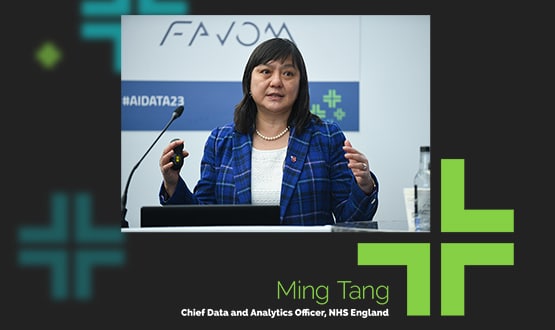Qureight aims to reduce racial inequalities in lung disease treatment
- 25 May 2023

Cambridge medical technology company Qureight is working with University Hospitals Birmingham (UHB) to ensure that its artificial intelligence (AI) model for treating a complex lung disease reflects the population diversity of Britain, the first research project of its kind.
Ideopathic Pulmonary Fibrosis (IPF) is a type of lung disease that currently has a survival time worse than most cancers.
“IPF is predominantly found in minority patients, but clinical trials of blockbuster drugs done in the US and Europe are primarily done in white men,” Muhunthan Thillai, a consultant physician at the Royal Papworth Hospital in Cambridge and the CEO and co-founder of Qureight, said in an interview with Digital Health.
Qureight has used AI tools to reveal insights from existing IPF patient data that could help extend the lives of thousands of UK patients each year.
However, current research data does not always reflect the true make-up of all communities in Britain. The Birmingham project is the first time that significant volumes of data from minority ethnic patients will be structured and made available for complex lung disease research and drug development.
A novel application of neural network learning
Qureight has developed an AI model that tracks lung scarring and other signs of disease progression in IPF patients.
The models can predict the likelihood a patient will survive for 12 months and whether current treatments are working, Thillai says the prognosis can also help patients decide whether to opt for more toxic therapies with more serious side effects.
“We build anatomical models, and those types of exact anatomical answers are really helpful in disease progression,” he says. “Neural network learning has only been available for a couple of years in imaging. It is now possible to build 3D models, and we were the first to apply it to this disease.”
Qureight already is partnering with pharmaceutical partners such as Roche and Boehringer, and ran a study for Belgian pharma company Galapagos’s IPF treatment at the European Respiratory Society (ERS) annual meeting in September.
Because efficacy studies have been based on data primarily collected from white men, however, it remains unclear whether Qureight’s technology is as accurate at detecting disease progression in more diverse populations.
The Birmingham trial, which will result in AI models that better reflect population diversity, should provide initial results by the end of the year, Thillai said.
The company hopes to expand its lung and airway models to asthma, a disease that is growing particularly in the developing world, he added. It also has ambitions to expand into models looking at blood-based biomarkers.




